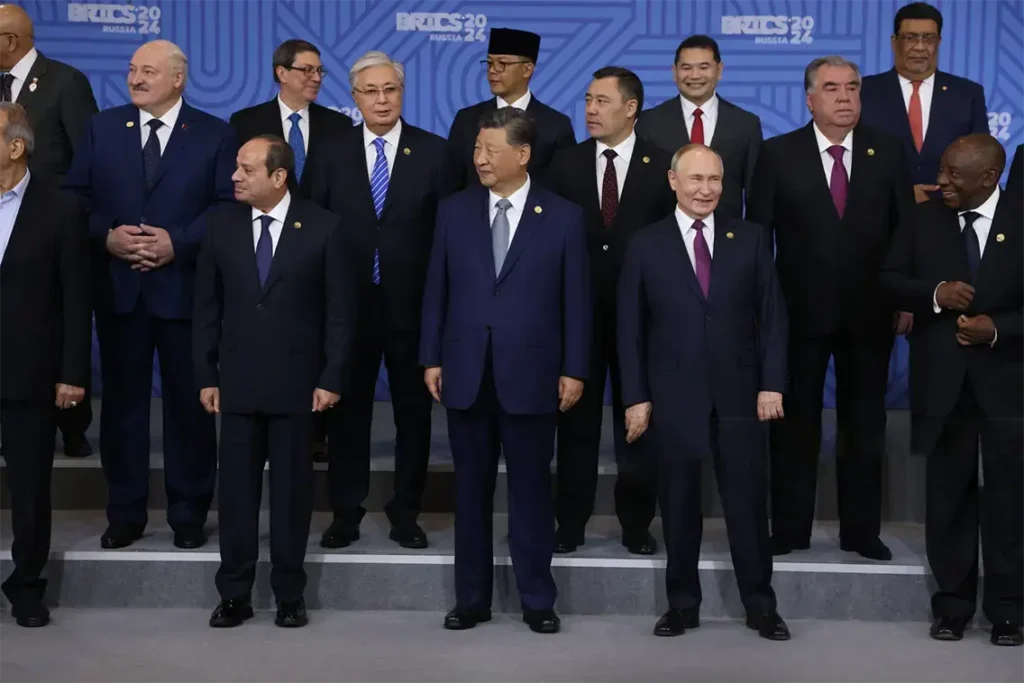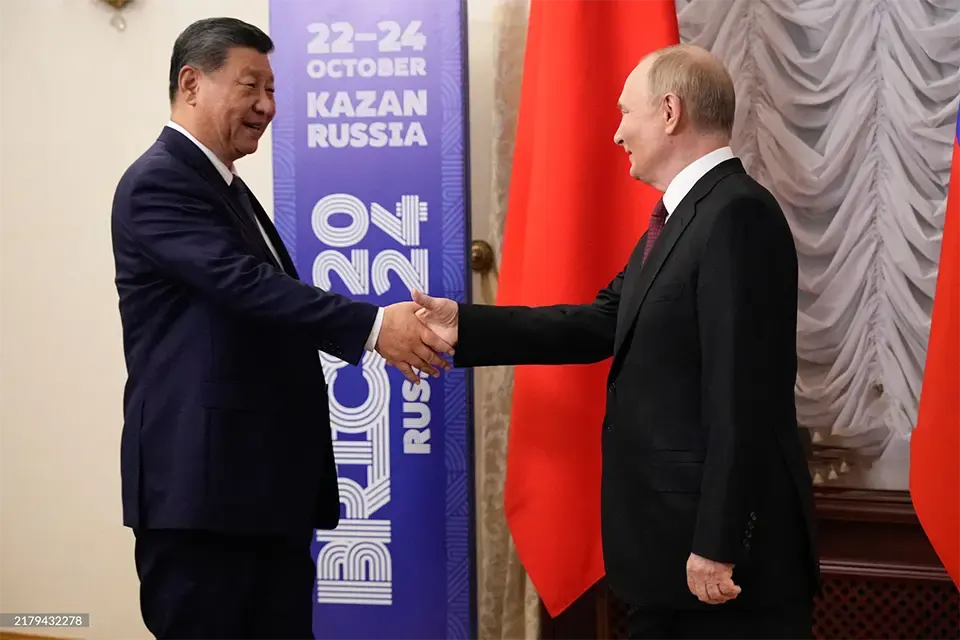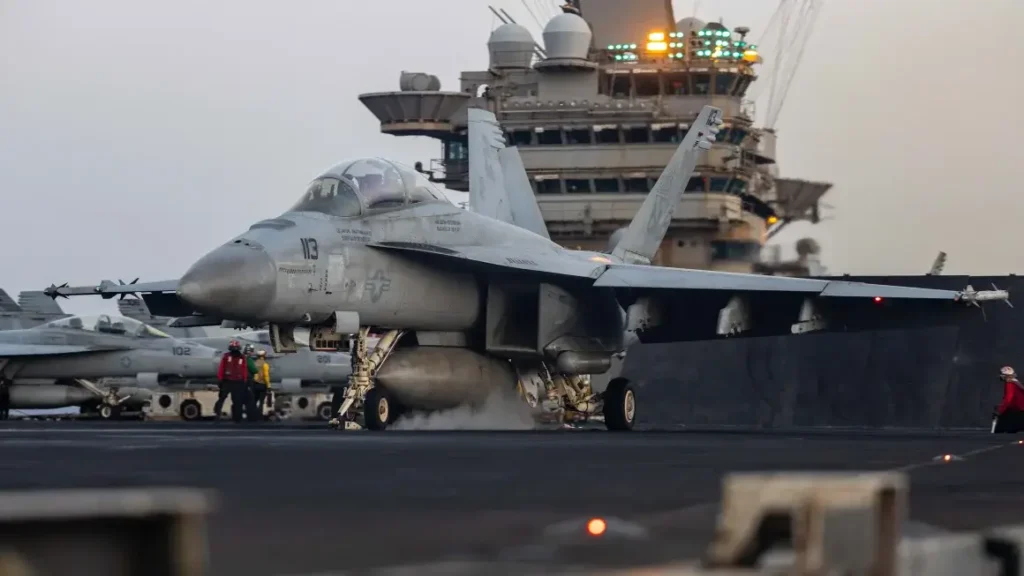
In a powerful diplomatic gesture, Chinese President Xi Jinping is set to make an official state visit to Russia from May 7 to 10, 2025, at the invitation of Russian President Vladimir Putin. This visit is far more than a ceremonial event. It coincides with the 80th anniversary of Victory Day, a deeply significant occasion for Russia, commemorating the Soviet Union’s victory over Nazi Germany in World War II. President Xi’s participation in this event, and his scheduled meetings with Putin, send a strong message about the growing alignment between the two global powers.
This high-profile visit occurs amid escalating geopolitical tensions, with the global balance of power increasingly tilting toward a multipolar order. As Western alliances like NATO strengthen and expand in response to crises such as the Russia-Ukraine war and growing concerns over China’s posture in the Indo-Pacific, the world is watching closely to understand the implications of the Sino-Russian bond.
A Symbolic Presence: Victory Day Parade in Moscow

— Joint Statement from Presidents Xi and Putin
One of the most anticipated aspects of Xi Jinping’s visit is his attendance at Russia’s Victory Day parade on May 9. This celebration marks the Soviet triumph over Nazi forces in 1945 and has long been a platform for the Russian state to project its military strength and historical pride. Xi’s presence at the event not only honors the shared history of the two nations during World War II but also signals political solidarity during a time when Russia faces international sanctions and increasing isolation from the West.
Observers view this visit as a mutual assertion of independence from Western influence, particularly as both nations emphasize historical narratives that portray them as guardians of global stability. Xi’s attendance at the parade provides a powerful photo opportunity, one that will be replayed globally to underscore the strength of the Sino-Russian alliance.
Bilateral Agenda: A Deepening Strategic Partnership
Beyond ceremonial duties, the visit carries a comprehensive diplomatic agenda. Xi and Putin are expected to hold a series of high-level talks focused on strengthening their “comprehensive strategic partnership of coordination for a new era,” a term frequently used in Chinese state media.
The two leaders are slated to discuss several key areas of cooperation:
- Economic Collaboration: With Western sanctions cutting off Russia from many global markets, China has become a critical economic partner. Bilateral trade reached over $240 billion in 2024, and new agreements are expected to further expand energy cooperation, including oil and gas pipeline projects and joint ventures in rare earth minerals.
- Military Coordination: China and Russia have been conducting joint military drills in both Asia and Europe. While China has maintained a position of neutrality on the Ukraine conflict, Western intelligence reports suggest it has provided non-lethal military supplies and critical components used in Russian weaponry. Further discussions on defense collaboration are anticipated during this visit.
- Technology and Infrastructure: Both countries have a shared interest in reducing reliance on U.S.-controlled technologies. Initiatives for cooperation in semiconductors, AI research, and space exploration may be announced. Infrastructure connectivity through China’s Belt and Road Initiative (BRI) and Russia’s Eurasian Economic Union (EAEU) could also be part of the discussions.
- Diplomatic Coordination: On global platforms such as the United Nations, BRICS, and the Shanghai Cooperation Organization, China and Russia have increasingly coordinated their voting and policy stances. With new Western sanctions proposed in the U.S. Congress and EU Parliament, the two leaders are likely to discuss joint countermeasures and diplomatic strategies.
Global Reactions and Strategic Implications
Xi Jinping’s state visit is already drawing reactions from the international community. The United States, European Union, and NATO allies have expressed concerns about China’s growing support for Russia, particularly in light of the ongoing Ukraine conflict. While Beijing claims neutrality, Western analysts argue that its actions often signal tacit endorsement of Moscow’s policies.
This visit also adds pressure to other international partnerships. Countries in the Global South observing this alignment may be influenced to recalibrate their foreign policies, seeking to balance between Western powers and the emerging Eurasian axis represented by China and Russia.
Furthermore, this state visit challenges the perception that Russia is isolated. With Xi Jinping’s visible support, Putin gains a crucial political win on the world stage, especially during a symbolic national moment like Victory Day. It bolsters domestic support within Russia, where the Kremlin has emphasized its resilience against Western pressure.
Historical Parallels and Ideological Symbiosis
The Sino-Russian relationship is rooted in decades of shared ideology, economic exchange, and political strategy. Though the alliance has had periods of tension – most notably during the Sino-Soviet split in the 20th century – the current partnership appears more pragmatic and strategic than ideological. Both nations resist what they describe as “Western hegemony” and seek to promote a multipolar world order.
Xi Jinping’s third visit to Russia since the start of the Ukraine war underscores his personal commitment to this bilateral relationship. It mirrors Cold War-style alignments, where two powerful nations consolidate their influence in a bid to re-shape the rules of international engagement.
Domestic Considerations in China and Russia
Both Xi and Putin face significant domestic challenges. For Xi, navigating China’s economic slowdown and managing global trade tensions are high on the agenda. His visit to Russia is a strategic move to secure alternative markets and demonstrate international leadership.
For Putin, the visit is equally crucial. As international sanctions continue to squeeze Russia’s economy, validation from a global power like China offers a much-needed morale boost. It allows Putin to show the Russian public that Moscow still commands respect on the world stage and that the Kremlin’s pivot to the East is yielding dividends.
Future of the Alliance: Temporary Convenience or Lasting Bond?
While China and Russia present a united front, questions remain about the durability of their partnership. Some analysts suggest that their relationship is largely transactional, driven by current geopolitical needs rather than long-term alignment of interests. For instance, both nations have competing interests in Central Asia and differing approaches to global leadership.
However, the consistency of their collaboration since 2022 suggests a strong mutual understanding. As long as the West continues to challenge both nations diplomatically and economically, their bond is likely to endure and even strengthen.
A Turning Point in Global Politics
Xi Jinping’s visit to Russia marks a pivotal moment in global geopolitics. More than just a diplomatic courtesy, it is a powerful display of strategic alignment between two of the world’s most influential leaders. As they stand side-by-side during Victory Day celebrations, the message to the world is clear: the Sino-Russian axis is not only intact but advancing.
For countries navigating the complexities of international relations in 2025, this visit underscores a shifting global order — one where traditional alliances are being tested and new partnerships are redefining global power dynamics.



